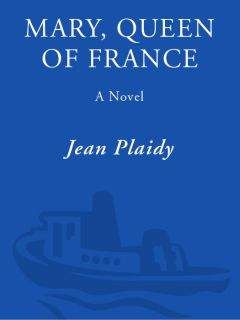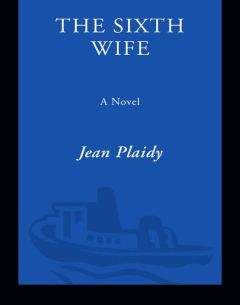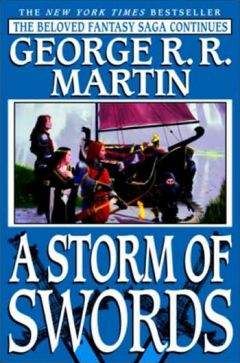When he rode into East Hampstead he was pleased to find that Arthur was there.
He watched his son approach and kneel. The greeting was formal. Henry found it difficult to be otherwise. But his smile was as warm as could be expected. Arthur looked at him almost apologetically. Did the boy know how wan he looked, that there were dark shadows under his eyes and how much the pallor of his skin alarmed the King?
“I see you in good health, my son,” he said.
“Yes, my lord,” answered Arthur a little too eagerly.
“That is well. We have some duties ahead of us. The Sovereigns will expect a fine wedding for their daughter. Are you eager to meet your bride?”
Arthur said again with that emphasis which was a little too firm: “I am indeed, my lord.”
“That is well, and I’ll swear she is as eager to meet you. We shall set out tomorrow morning at dawn . . . and we shall soon intercept her, I doubt not.”
Perhaps the boy would look better after a rest, thought the King. Of course he was tired out after the journey. Perhaps it would be better if the marriage were not consummated . . . just yet. Let them wait a year or so . . . Arthur would be stronger then.
“The Infanta is at Dogmersfield,” said the King. “Tomorrow we shall set out to meet her. I am sure you are overcome with eagerness.”
“Yes, my lord.”
Arthur spoke quietly. He hated to lie to his father but duty demanded that he should. How could he tell his father that he hated the prospect and his dearest wish was that he could have a quiet life free from his obligations.
“Then we shall rest well tonight,” said the King, “and set off with the dawn.”
Arthur gratefully retired. The King was very uneasy. Every time he saw Arthur he thought he looked a little more frail.
When next morning they set out it had started to rain. The King’s anxious eyes were on Arthur. The boy would get a wetting and the doctors had said that was not good for him; it started up his cough.
There was more trouble to come. Before they reached the Bishop’s Palace at Dogmersfield where Katharine was spending the night, they were met by de Ayala and a group of his entourage.
De Ayla rode up to the King and the two men confronted each other in the rain.
“My lord King,” said de Ayala. “Is it true that you are coming to visit the Infanta?”
“Indeed it is,” replied Henry. “My son is anxious to greet his bride. You look surprised. Do you not understand that we are all eagerness to welcome the Infanta to our shores?”
“I know it so, my lord. But the Spanish law is that none shall see the Infanta unveiled until the marriage has been celebrated.”
“My lord, you cannot be telling me that I am not allowed to look on my son’s bride.”
“That is what I do say, my lord, and you must forgive me but it is the law in Spain.”
“It is not in England,” said the King grimly.
“My lord, our Infanta is the daughter of the Sovereigns of Spain and she is accustomed to Spanish laws and customs.”
“She will perforce learn to accept our English ones, for when she marries she will be one of us.”
“The ceremony has not yet taken place.”
The King was aghast. He had part of the dowry. That was the first thought that struck him. What was it about the Infanta that they were afraid of his seeing? Was she deformed in some way? Was she incapable of bearing children? He must not see her! What absurd custom was this? They were behaving like infidels. Of course, their country had been the home of the Moors for centuries. Perhaps some of their customs had been preserved in Spain. But this was England and he was the King and none of his subjects should defy him.
“You will understand, Don Pedro de Ayala,” he said, “that I am unaccustomed to being forbidden to act as I will in my own country. You say this is the wish of the Sovereigns of Spain. It is certainly not my wish. I will talk with my ministers. Fortunately they are with me and if they agree that with their help I make the rules in this country and they decide that I shall see the Infanta, then so be it, I shall.”
De Ayala bowed. “It would be against the will of my Sovereigns.”
“Then we shall see,” said the King.
He turned and addressed his followers and told them what de Ayala had said. “I am therefore calling a council here in that field yonder and there we will determine what is to be done.”
It was an extraordinary scene with the rain now turned to fine drizzle and in the field, with Arthur beside him, Henry asked his ministers to advise him on how to act in these extraordinary circumstances.
With one accord all declared that the King was ruler in his own country and the ridiculous—one might say barbaric—law of Spain must be set aside if it were the King’s will. It would be unwise to let the Sovereigns think that they could control events in England.
So they left the field and went to de Ayala who was waiting on the road.
The King told him what had happened. De Ayala bowed his head and said he would ride ahead to Dogmersfield and inform the Infanta and her household of the King’s decision.
De Ayala was laughing secretly. His nature was such that he enjoyed situations such as this one. He applauded the King’s decision secretly and he would have despised Henry if he had given way, but now he was eager to see what effect this would have on the Infanta’s entourage and particularly on Doña Elvira who was, he had secretly thought for some time, getting a little above herself.
When he returned, the Infanta’s entourage was thrown into turmoil.
“Never,” cried Elvira. “This is a violation of custom. Queen Isabella would never forgive me . . . .”
“It is perhaps a matter for the Infanta herself to decide,” suggested de Ayala.
“The Infanta! She is only a child.”
“She is soon to be a bride and she is at the center of this storm. I see no alternative but to lay the matter before her. And it must be done with all speed as the King is even now riding this way and when he comes he will demand to see the Infanta.”
Katharine listened gravely and gave her decision.
“This is England. Their customs are not ours. The King has declared he will see me unveiled. Well, so must it be. I will receive him and the Prince as they wish.”
Elvira scolded. “What will your gracious mother say when she hears?”
“She will understand,” said Katharine.
De Ayala watched her with admiration. She had spirit, this Princess, and as far as her looks were concerned she might not be an obvious beauty but certainly she had nothing to hide.
“I should be veiled,” cried Elvira. “I should cover my face in shame.”
Katharine shrugged her shoulders and turned away. Elvira must understand that although she had an important position in the household she did not rule it.
Katharine was waiting for the King when he arrived and begged that he be brought to her without delay.
Henry entered. He came to her and stood before her. Then as she bowed he took her hands in his and kissed them.
She looked up at him and saw a man of spare figure, pale skinned, with damp reddish hair falling to his shoulders. The ermine on the sleeves of his gown was wet and bedraggled. He could not speak Spanish and it was difficult for them to talk together but he did manage to convey to her that he was delighted to see her and that he apologized for overriding the laws of her country.
All the time he was studying her intently. She looked strong and healthy. He was relieved to see that it was only a custom and that there had been no ulterior motive in keeping her face covered.
He wanted her to know that he was delighted to see her for he applauded her good sense in adjusting so quickly to English customs.
He turned to one of his attendants and said: “Send in the Prince the moment he arrives.”
He talked to Katharine gently, quietly and although she understood little of what he said, she found him reassuring. She was glad that she had not refused to unveil; she could understand that in this country it would seem a very foolish custom. She was sure her mother would agree with her. She had been brought up to be reasonable.
There was a fanfare from without announcing the arrival of the Prince of Wales and there he was, standing before her . . . a frail boy, smaller than herself, very damp from his ride through the rain, looking at her with apprehension in his pale blue eyes.
She smiled at him and he returned the smile.
Then remembering what was required of him he took her hand and kissed it.
He is only a boy, she thought, younger than I. There is nothing to fear from him.
The King was smiling on them benignly. There was no doubt that they had taken a fancy to each other.
Good! thought the King, but Arthur is too frail as yet for the consummation.
He hurried through the ceremony, and murmured something to Arthur’s squire that the Prince should take off his damp clothes as soon as possible, be rubbed down and put into dry ones.
The Bride and
the Widow
hey were seated at the banquet side by side, immediately good friends, their great attraction being that each of them knew there was nothing to fear from the other.
As she was residing in the Bishop’s house it was she who invited the King and the Prince to her apartments to sup and the Bishop being prepared for this was determined to win the King’s favor by making sure that his household provided such a meal as he would get in one of his royal palaces. Henry himself was no glutton, and in fact resented the amount of money which was wasted on food; but he was fully aware of the impression which must be made, not so much on the Princess as on her attendants who would return to Spain and report on the manner in which the Princess had been received and that would include a description of what there had been to eat at the Bishop’s table.
Henry doubted if such sucking pig, chickens, beef, mutton, fish and pies could be surpassed at the Spanish Court and the Infanta certainly seemed surprised by the abundance of it and the large amounts consumed by the guests.
The Prince looked less vulnerable now that he was free of his damp clothes and wore a fine velvet gown trimmed with ermine and a beautifully embroidered shirt. His hair gleamed and his blue eyes shone with pleasure; he was clearly delighted by Katharine’s gentleness.
He could not speak Spanish, but they discovered that they both understood Latin.
She would teach him Spanish, she said, and he felt excited as he always did at the prospect of studying some new subject.
He would teach her English, he promised and she told him that she had already learned a few words.
He asked her about her family and she described to him not what had happened recently but her early days when she had been the baby of a large family. She talked of her mother and he said: “You love her dearly.” She answered that her mother was not only one of the greatest queens of Europe but she had always had time for her children. He knew that Isabella was the ruler of Spain—for although Ferdinand ruled with her it was Isabella who was the leader of the two, for Castile was so much more important than Aragon—but according to Katharine she had also found time to be the best mother in the world.
“Perhaps she will visit you here. Or perhaps we shall go to Spain.”
“Could we?”
“We shall be the King and the Queen. They do not have to ask if they may.”
For the first time in his life he wanted to be king. He was amazed. Katharine had done that for him.
As the evening wore on and the feasting was over it was time for dancing. The minstrels were there and Don Pedro de Ayala whispered to Katharine that she should show the King some of their Spanish dances.
Katharine loved to dance and summoning some of her ladies she commanded them to dance with her. The King watched her. She was strong and healthy enough. He had nothing of which to complain and he was glad he had shown the Spaniards that he would have none of their Moorish customs in England.
He was anxious though, for as the Infanta had danced, this meant that the Prince would have to do the same. Not together. That would not be discreet until they were married. It was a good thing. The little Spaniard was too agile for Arthur.
He beckoned to Lady Guildford, one of the ladies of the royal nurseries, a motherly woman who had always shown concern for the children.
“Take the Prince in the dance,” he said. He looked at her steadily. “Do not keep him at it too long. Something short and not too lively . . .”
She understood.
So she and Arthur showed the Spanish Princess an English dance. The Prince was grateful and would have done well if he were not so short of breath.
He was greatly relieved to sit down and tried not to show how fatigued he was.
But Katharine noticed. It made her feel very tender toward him.
Prince Henry was delighted. Although he resented the fact that this was not his wedding, he was to play a big part in it. His father had chosen him to lead the Spanish Infanta first into the city and later to the altar.
He was smiling happily as his attendants gathered round him as he was dressed. He looked complacently down at his well-shaped legs in their close-fitting hose. His shirt and pourpoint were of the finest but what pleased him most was the coat—lined with ermine—and the gold chain which was placed about his neck. He would be recognized at once as a Prince.
So royally clad he mounted his horse, which was as grand as he was. Even his gold stirrups were decorated with jewels. He looked magnificent—older than his ten years for he was tall and broad and as he still possessed a very youthful-looking face he was certain to attract the admiration of the crowd. His usually pink cheeks were a shade deeper, and as the sun shone on the thick reddish curls which framed his face he was indeed a handsome sight.
His father himself had told him of what was expected of him. He had warned him that he must please the people. He had meant of course that he must not push himself too much to the fore, the people would not be so much interested in him as in the bride and bridegroom. He must remember to conduct himself with decorum as a prince and knight must always do.
Henry implied that he was well aware of this and added that his father would have no need to be ashamed of him.
And now here he was seated on his horse, waiting for the approach of the Spanish Princess. He had crossed London Bridge and was in St. George’s Field close to Lambeth Palace from which Katharine would emerge.
He was impatient to see her. He had heard that she was handsome and not ill-formed as had been feared because at first she was reluctant to show her face. Lucky Arthur to marry the daughter of Spain! Her mother was very rich and powerful and Katharine had brought many treasures with her from Spain.
Henry’s eyes sparkled at the thought of riches. Not that he would want to hoard them as it was rumored his father did. If he had the money he would spend it on grand occasions, jousting, feasting, fine clothes and riding among the people, giving them amusements, tournaments, baiting of animals and royal pageantry, so pleasing the people.





